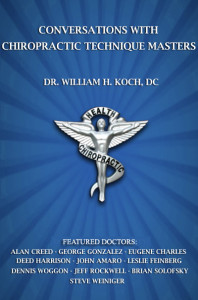Testosterone–The Low-T Solution
The hot topic for men these days seems to be low testosterone. In the men’s health magazines, on the radio, on TV, in the news and the commercials, everybody is talking about “low-T.” They are either advertising a product to treat low-T – or soliciting those injured by side effects of the drug treatments to participate in class action law suits.
There is no doubt that low testosterone is a very real condition affecting more and more men these days. It is an important quality of life issue.
Lower than normal healthy testosterone levels are a serious health concern affecting millions of American men, young and old. While lower testosterone levels are expected as men enter old age, it is not something we should be seeing in 30 or 40 year olds. But this is becoming common.
Healthy men should have testosterone levels greater than 550mg/dl through middle age and beyond. Yet 25% of men over 30 have blood testosterone below this level.
It became personal when, as I got into my late sixties I began noticing changes in my strength, endurance, moods and muscle mass. I had my hormone levels checked and decided it was indeed an issue for me.
When I read Dr. Kyl Smith’s book, The Testosterone Switch,™ I realized that a low-T problem was more than just an uncomfortable cause of looking and feeling older. Low testosterone, even low-normal levels of testosterone can have some very serious negative health implications, including increased risk of death from a variety of causes.
Below is an excerpt from Dr. Kyl Smith’s book which is an amazing list of science-based, low testosterone facts:
- Low-normal total testosterone concentrations are associated with reductions in energy, motivation, initiative, self-confidence, concentration and memory, sleep quality, muscle bulk and strength, diminished physical or work performance, feeling sad or blue, depressed mood, mild anemia, and increased body fat and body mass index.
- Male sexual performance and function are dependent upon testosterone adequacy. The strength, duration and quality of erections as well as the frequency of successful intercourse are proportional to serum free testosterone concentration, and successful erectile function is facilitated by testosterone.
- Low-normal serum testosterone concentrations increase the risk for premature death from any cause.
- Low-normal serum testosterone concentrations increase the risk for death from any cancer.
- Low-normal serum testosterone concentrations increase the risk for death from cardiovascular disease.
- Low-normal serum testosterone concentrations increase the combined risk for suffering a first stroke or first transient ischemic attack.
- Low-normal serum testosterone concentrations are associated with reduced male sexual desire, function, performance and potency.
- Low-normal serum testosterone concentrations increase the risk for memory loss.
- Low-normal serum testosterone concentrations increase the risk for developing clinical depression.
- Low-normal serum testosterone concentrations increase the risk for an increased level of systemic inflammation.
That should be enough to make any man want to get his testosterone checked and then do something to get it up to healthy levels.
The question was what to do about it.
Treating “low T” in men with a synthetic hormone replacement therapy (HRT) is proving to be as ill advised as synthetic HRT for women. Potentially deadly side effects of Testosterone HRT include heart attack, stroke, blood clots and a possible increase in prostate cancer risk. The risk of such dangerous side effects far outweigh the benefits.
If you are concerned about your health, energy levels or think you might have lower than optimal healthy testosterone levels, please read The Testosterone Switch, and consider starting Dr. Smith’s 3 Step Plan toward a better you.
Those of you who follow my blog and are familiar with my website will be familiar with Dr. Kyl and know I have recommended this book before. It is such an important issue, and I have been so pleased with my own personal results as I work the plan, that I just had to recommend it again.
It is currently only available through Progressive Laboratories 1-800-527-9512. Ask for Nancy https://www.smallpieces.com/content/chapter1.html Craig and be sure to tell them Dr. William Koch recommended you call. If you prefer you can email Nancy Craig at [email protected] and tell her I referred you and you want a copy of the book, The Testosterone Switch.
In my next blog I will be further discussing issues of low testosterone, erectile dysfunction, cardio vascular dysfunction and how they are interrelated and connected.
In the meantime I encourage your questions and comments. You may email me at [email protected].

